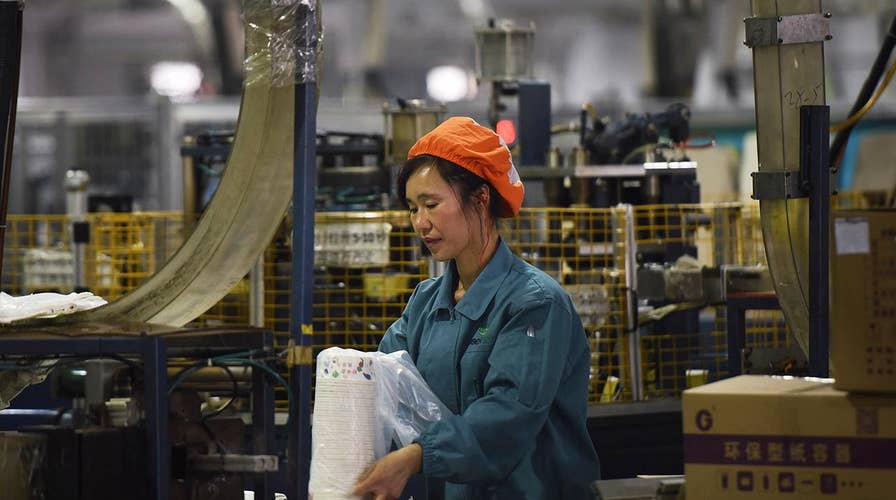Charlotte Pipe and Foundry was founded in North Carolina 117 years ago. The company is one of only three surviving domestic pipe manufacturers.
Company officials attending a foreign trade show recently were stunned when one looked over to see the Charlotte name, colors and logo posted above a booth advertising a table of iron and plastic fittings stamped with the Charlotte name.
"It just represents the broader Chinese strategy. They don't recognize international norms when it comes to IP [intellectual property] protection," said Charlotte vice president Bradford Mullen. "They are constantly pushing the envelope and we just think it is a threat to our company and our country."
Charlotte sued the Chinese company Yitai Plastics of Shanghai in 2017 for allegedly stealing its trademark. Records show Yitai registered the 'Charlotte' trademark in China in 2007 and in Singapore in 2015. Mullen said most countries Yitai would have had to stipulate in legal documents the integrity of the trademark. Not China.
"We see that across a broad range of industries where they've stolen technology, they steal intellectual property, they counterfeit products. It's rampant," said Mullen.
Charlotte Pipe also helped take the Chinese before the International Trade Commission for dumping cast iron pipe fittings on the U.S. market. The commission ruled in the Americans' favor in August, finding that the Chinese manufacturers had used state subsidies to undersell the fair market value of U.S. products by as much as 360 percent.
CHINA GIVES IVANKA TRUMP NEW TRADEMARKS AS TRADE TALKS CONTINUE
"When you have a paranoid regime that is not feeling bound by the rule of law -- they cheat," said Jim Lewis of the Center for Strategic Studies.
"Five years ago, people were unwilling to confront China. And now nobody feels that way."
In a scathing June report, the White House Office of Trade and Manufacturing Policy concluded that the People's Republic of China steals critical U.S. technologies through physical theft, cyberespionage, counterfeiting, evasion of U.S. export laws and the forced transfer of intellectual property from U.S. companies hoping to enter the Chinese market.
"People may not say it publicly, but yeah, the president is doing the right thing. We need to confront China and now is a good time to do it. The longer we wait the harder it will be," said Lewis, a former Commerce Department official specializing in high-tech trade with China.
President Trump set a March 2 deadline to conclude trade talks with China. Next week's round in Washington is considered critical if the U.S. is to get the sweeping type of structural reforms it called for. Recent reports suggest China is not willing to level the playing field with U.S. and European competitors or give up subsidies to the big domestic manufacturers who have reshaped their economy by massive exports to the West.
CLICK HERE TO GET THE FOX NEWS APP
Chinese officials give lip service to intellectual property theft, say many familiar with the talks, but China does not appear willing to put in place the regulatory structure to enforce compliance.
A more likely scenario has China agreeing to buy more U.S. goods to reduce the trade deficit, allowing both sides to claim victory.











































